How can music technology improve the well-being of people living with dementia?
What does music mean to you? Whether you play an instrument or enjoy listening to your favourite band, there are many ways to engage with music. But what happens if you begin to lose your memories of music or ability to play an instrument? Dr Jennifer MacRitchie is a musician and electronic engineer at the University of Sheffield, UK. She is collaborating with researchers Dr Justin Christensen and Jon Pigrem, to develop new digital music technologies to improve music accessibility for people living with dementia.
TALK LIKE A MUSIC TECHNOLOGIST
Acoustic musical instrument — a musical instrument that produces sound through vibrations of the instrument, usually generated by touch or breath
Cognitive — relating to mental ability
Dementia — an umbrella term referring to a range of progressive conditions with symptoms including memory loss, confusion and impaired cognitive ability
Digital lutherie — the creation of digital musical instruments
Digital musical instrument (DMI) — a musical instrument that relies on computing, rather than acoustics, to generate sound
Luthier — a person who makes musical instruments
Motor skills — skills required to perform movements
Music can remind us of significant moments in our lives, connect us with our idea of who we are or used to be, and generate social interactions as we bond with others over shared musical experiences and preferences. “Music is an activity that is multi-faceted in nature,” says Dr Jennifer MacRitchie, a musician and electronic engineer. “It engages with our emotions, makes us want to move, helps us relate to others and contributes to our personal identity.” As such, music can be good for everyone. It can also bring specific benefits for people living with dementia, which is why Jenni and her team are developing new technologies to facilitate dementia-accessible musical interactions.
What is dementia?
Dementia is an umbrella term that covers over 200 different progressive conditions, with common symptoms including memory loss, confusion, difficulty communicating, changes in behaviour and impairments to other cognitive abilities which impact day-to-day life. Alzheimer’s disease is the most common cause of dementia, accounting for 60-80% of cases.
How can music benefit people living with dementia?
“Music is highly communicative, but does not rely on words, allowing people living with dementia to connect through music,” explains Dr Justin Christensen, a musician and psychology researcher. “Musical abilities are often preserved as dementia progresses, giving people opportunities to creatively express themselves.” We often connect experiences with music, meaning it can have the power to reawaken memories in people who struggle to remember their life before the onset of dementia. Music is also a valuable social activity, and creating music together is a common leisure and therapeutic activity for people living with dementia.
Why do dementia-accessible musical interactions require technology?
“Imagine you are playing a violin,” says Jenni. “Think about all the brain functions you need to play a single note. You need the ability to read (or remember) the music to know which note to play, then to know the correct hand position to produce that note. You need the motor skills to press your fingers on the strings and to move the bow so it hits the string at the correct angle and pressure.” As dementia can cause a loss of memory and motor skills, technology can reduce the complexity of the actions needed to produce music. “The aim is to keep the experience of playing music as richly rewarding as possible, while simplifying the interface that the user interacts with,” explains Jenni.
Few music technologies have been designed specifically for people living with dementia, and the team hopes to change this by creating new digital musical instruments (DMIs). “Music technology isn’t just about building new musical instruments,” says Jon Pigrem, a musician and digital luthier. “We are also considering ways for people living with dementia to interact with all aspects of music, such as listening or creating playlists.”
What DMIs has the team invented?
Jenni, Justin and Jon have partnered with Bela, a music technology platform, to develop their dementia-friendly DMIs. When you play a ‘traditional’ acoustic musical instrument, the sound is generated by vibrations that produce sound waves (e.g., the vibrating strings of a violin, skin of a drum or air within a clarinet). In contrast, digital music is produced electronically by computers. Partnering with Bela allows the team to create digital interfaces that produce sound when someone interacts with them. “With Bela, we can use a wide range of sensor technologies to develop unique, assisted musical experiences that are realistic and meaningful to users,” says Jon.
For example, the Slider Box1 is like a mixing desk, where users can move levers up and down to combine pre-recorded pieces of music to produce new compositions. The pre-recorded tunes uploaded to the instrument can be chosen to be pieces that are familiar to the user, allowing the Slider Box to be used in reminiscence therapy. “The active process of selecting familiar music from the past can help people living with dementia to access memories,” Jon explains.
The Music Memory Makers2 duet system is an electronic version of the mechanical music box that was popular in the 19th century and allows two people to create music together by spinning the handles on the box. “The aim of the duet system is to provide a meaningful way for couples to continue interacting together as one of them experiences dementia, through the power of music,” says Justin.
The In C Box1 is like an arcade machine. It is covered with coloured buttons, each of which produces a different sound and lights up when pressed. “The In C Box explores notions of agency in the composition process for those with no musical training, or with cognitive or physical barriers to musical performance,” says Jon.
How are people living with dementia contributing to the DMIs?
“This project relies on us collaborating with people living with dementia and their carers,” explains Jenni. “They are the experts on their experience.” The team is therefore working with local community groups and residential care facilities, so that people living with dementia can provide input about what they want from musical interactions and what specific requirements they have. “Working with people living with dementia means that together we can co-design DMIs that reflect what individuals want to do with these technologies,” says Jenni.
“Every person living with dementia is unique, so there isn’t a one-size-fits-all solution,” says Jon. “We need to be flexible as we work with people to understand their needs and accommodate them through accessible technology.” The team organises workshops where people living with dementia and their carers can share how they want to interact with music, discuss the barriers they face, and try out and provide feedback on the DMIs.
“People in the workshops can be hesitant at first, as dementia can rob people of the ability to feel confident in their actions,” says Justin. “However, they light up when they interact with the music, both from enjoyment and the feeling of success. Seeing people’s reactions to our DMIs is my favourite aspect of the project.”
These workshops highlight the benefits that music can bring to people living with dementia, as both an emotional and social tool. “The best part of this project is that we didn’t know the participants at the start of the workshops. However, once we’d sung some Elvis songs together and chatted about gigs we’d been to and instruments we played, it felt like we had windows into each other’s lives,” says Jenni. “Music really can help us connect with others.”
Watch this video to see the team’s digital musical instruments being used by people living with dementia: player.sheffield.ac.uk/events/music-dementia-technology
References:
1. Pigrem J, MacRitchie J, & McPherson AP (2023). Instructions Not Included: Dementia-Friendly approaches to DMI Design. In: Proceedings of the International Conference on New Interfaces for Musical Expression (NIME), Mexico City, Mexico
2. Christensen J, Kauenhofen S, Loehr J, Lang J, Peacock S, & Nicol J (2023). MMM Duet System: New accessible musical technology for people living with dementia. In: Proceedings of the 18th International Audio Mostly Conference (AM ‘23), Edinburgh, UK

Dr Jennifer MacRitchie
Senior Research Fellow, Department of Music, University of Sheffield, UK
Adjunct Research Fellow, The MARCS Institute for Brain, Behaviour and Development, Western Sydney University, Australia
Fields of research: Music Technology, Electronic Engineering, Cognitive Science

Dr Justin Christensen
Research Associate, Department of Music, University of Sheffield, UK
Fields of research: Music, Psychology

Jon Pigrem
Research Technician Officer, Department of Music, University of Sheffield, UK
PhD student, School of Electronic Engineering and Computer Science, Queen Mary University of London, UK
Fields of research: Music, Digital Lutherie
Research project: Designing new musical technologies for older adults’ well-being
Current and past team members: Dr Jennifer MacRitchie, Dr Justin Christensen, Jon Pigrem, Michael Neokleous, Katherine Jackson, Dr Georgia Floridou, Prof Renee Timmers (University of Sheffield), Prof Luc de Witte (The Hague University of Applied Sciences), Prof Andrew McPherson (Imperial College, London) and project partner Bela (Augmented Instruments Ltd). We would like to acknowledge our community partners in this research who have consulted with us on our research aims and developed devices including Dementia Research Advisory Group South Yorkshire (DRAiSY), Sheffield Dementia Involvement Group (SHINDIG), and facilitators and attendees of dementia cafés run through Age UK Sheffield, Heeley City Farm, and Darnall Wellbeing.
Funder: This research is funded by a UK Research and Innovation (UKRI) Future Leaders Fellowship awarded to Jennifer MacRitchie (MR/T040580/1)
Reference
https://doi.org/10.33424/FUTURUM394
The Slider Box is like a mixing desk, allowing users to combine pre-recorded pieces of music to produce new compositions
© Jennifer MacRitchie (CC BY-NC-ND)
A person with living dementia interacts with one of the team’s digital musical instruments
© Jennifer MacRitchie (CC BY-NC-ND)
About music technology
Music technology involves applying technology, such as computers and software, to the musical arts. It covers everything from designing accessible instruments for people with physical or cognitive disabilities, to being a music producer at a record label, to working as a sound engineer. “From gramophones and player pianos to Spotify and Guitar Hero, technology has long supported the musical experience!” says Jon.
How important is interdisciplinary collaboration for harnessing the benefits of music for well-being?
The team’s project to develop dementia-accessible musical experiences relies on collaboration with researchers from many different fields. For example, while Jenni, Justin and Jon are all musicians, Jenni has a background in electronic engineering and cognitive science, Justin has a background in psychology and Jon has a background in digital lutherie. The project also requires expertise in design, music therapy and nursing. “Interdisciplinary research enables a better understanding of how technology, music and social care come together to provide real-life solutions,” says Jon.
How is music changing as technology advances?
“Before there were Spotify playlists, my generation used to make mixtapes,” says Jenni, highlighting how past technological inventions have changed how people interact with music. “We recorded songs onto cassette tapes, then later onto CDs, to listen to at home or give to our friends.”
In the past, music was composed by writing instructions for musicians on paper, performed by musicians on acoustic instruments, and listened to by live audiences in concert halls. Today, anyone can compose music on their computer using composition apps, it can be performed completely electronically using mixing desks, and anyone with access to the internet can listen to almost any piece of music they desire. Technology has revolutionised how music is created and consumed, making it far more accessible.
What does music mean to you?
How has music has impacted your life? Has your mood ever changed after listening to or playing a song? Have you relied on music to get you through a difficult time? Or made friends through a musical group? If so, a career in the field of music technology will allow you to give other people similar powerful musical experiences.
Pathway from school to music technology
• A passion for music is the most important thing for working in any music-related field!
• If you play an instrument, join your school band or a local youth orchestra. Why not start your own band with your friends?
• If you are interested in other aspects of music, find others who share your passions. “Whatever your interests, there will be a group of people somewhere doing it,” says Jon. “Use the internet to find your community and get involved! For example, music blogs and podcasts often have communities you can engage with.”
• At school, studying music, design, technology and physics will all be useful if you are interested in a career in music technology.
• Some universities offer degrees in music technology or engineering with music. You could also study electrical or electronic engineering and apply your skills to music-related challenges, or you could study music production if you are interested in the technology required for modern music production.
• The Department of Music at the University of Sheffield has an outreach programme for schools (www.sheffield.ac.uk/music/school-resources) and offers a range of music degrees (www.sheffield.ac.uk/music/undergraduate), including courses that allow students to specialise in music technology. All programmes provide opportunities to work with local partners in sound and technology industries.
Explore careers in music technology
• There are many career options in the field of music technology. Most aspects of modern music production require technology, so you could find yourself working as a music producer, director, sound engineer or technician. If you enjoy performing, you could work as an electronic musician or DJ.
• “Today, everything from websites and podcasts to news broadcasts and children’s toys has some role for music technology,” says Jon. “As an industry, it is at the forefront of cultural and technical invention and overlaps the worlds of science and the arts.”
• Careers in Music has a wealth of information about different careers in music and what they involve: www.careersinmusic.com
• MusicTechMag has an article about the role of music technology: www.musictechmag.co.uk/What-is-Music-Technology.html
• This blog article explains the many different devices used in music technology: www.brianjump.net/2017/05/28/music-technology
Meet Jenni
I have been privileged to have had access to music lessons from a young age. I started learning the violin when I was five, switched to the viola soon after, and began piano lessons when I was eight. Growing up, I played music for my own enjoyment and in local youth orchestras. For me, music has always been a way of connecting with other people, making new friends, and having fun experiences playing and performing.
I could never choose between the sciences and arts, which is why I studied a joint degree of electronics with music at university. Music had always been my passion, but I also really loved doing experiments in physics and thinking about how things worked. I was delighted to discover a degree programme that combined my interests. I was able to get a fully accredited engineering degree alongside a music degree and I could take courses where engineering and music intertwined.
My dual arts and sciences background helps me to see projects from multiple angles. It also helps me talk to a range of people about my work. This is very useful when we collaborate with people from different fields, such as nursing, psychology or computer sciences.
I enjoy playing classical music on the piano and I play the viola in a local orchestra. I also like to mix things up sometimes – I was recently in a post-rock band where I connected my viola through a guitar amplifier. I enjoy listening to rock and jazz music. I also have a Disney playlist for the car – I say it’s for my kids, but it’s really for me, too!
Meet Justin
Music has always been a big part of my life and I’ve had numerous powerful musical experiences. I’ve had musical training since I was young, beginning with violin and piano lessons. I now play the trumpet in a contemporary classical ensemble, and I write my own musical compositions to express myself in ways that I can’t quite seem to manage in words.
Growing up, I mainly listened to classical music. At university, I started listening to popular music and saw how it can play a role in developing friendships around shared interests. You will almost always find me listening to music, either as a focus or as a background to help me do other things. The type of music will depend on my mood – classical, dance, experimental, alternative pop… I’m increasingly listening to UK pop music from the 1950s to 80s, as this helps me connect with the people living with dementia that I interact with.
I’m interested in how music can affect our perception of time. The passage of time is constant, but I think we all have feelings that time is passing faster at some moments and slower at others. For me, music, and how immersed I get into it, can really affect my sense of time. I’m also fascinated by how, when people play music together, they can feel they are joined together into something bigger than themselves.
Meet Jon
Music has been my passion since a young age, and it has been my full-time career for as long as I can remember. Music has given me the freedom to explore the world through touring and performing, as well as providing stability to grow and develop at home.
In my research, I explore notions of musical interaction, usually mediated through digital technology of some kind. I design and create very specific instruments to highlight these different interactions so that I can explore them in greater depth.
Digital lutherie involves the creation of digital musical instruments. It is as much about artistic design and engineering research as it is about making the instruments themselves. I’ve been designing new instruments for years, and the longer I do it, the more interesting it becomes. In this project, I am a technical research officer, and my role is to build the instruments that we are using in our research
Do you have a question for Jenni, Justin or Jon?
Write it in the comments box below and Jenni, Justin or Jon will get back to you. (Remember, researchers are very busy people, so you may have to wait a few days.)

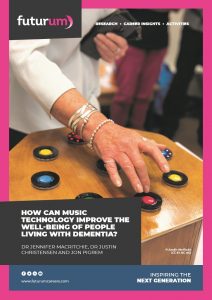
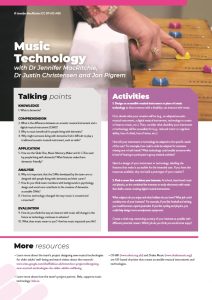
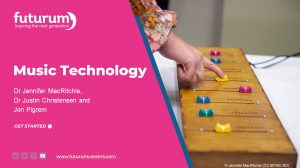
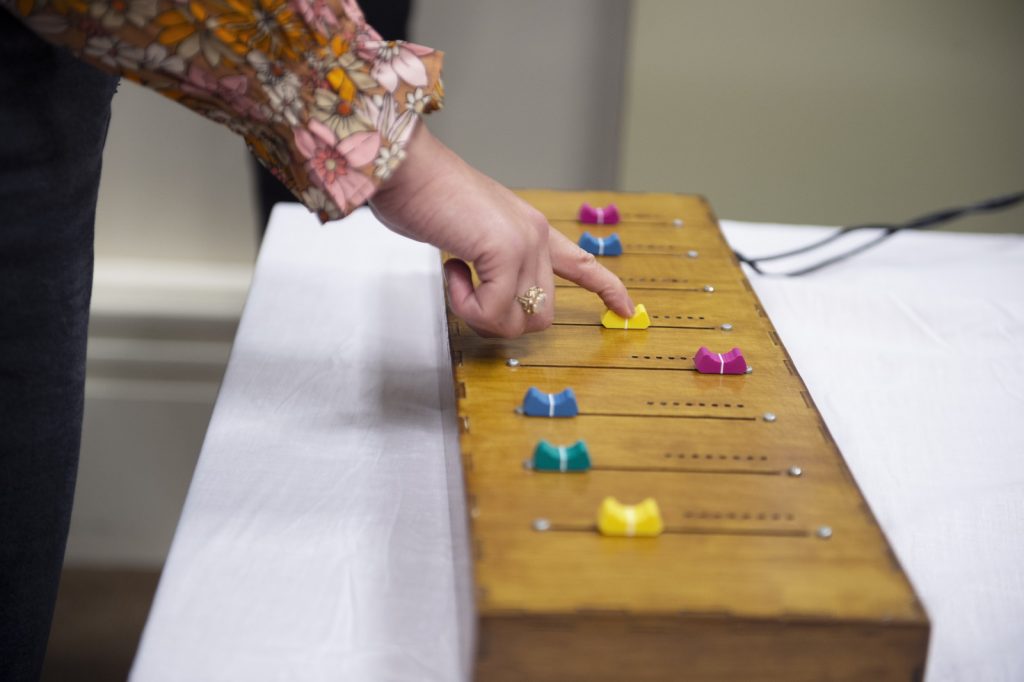
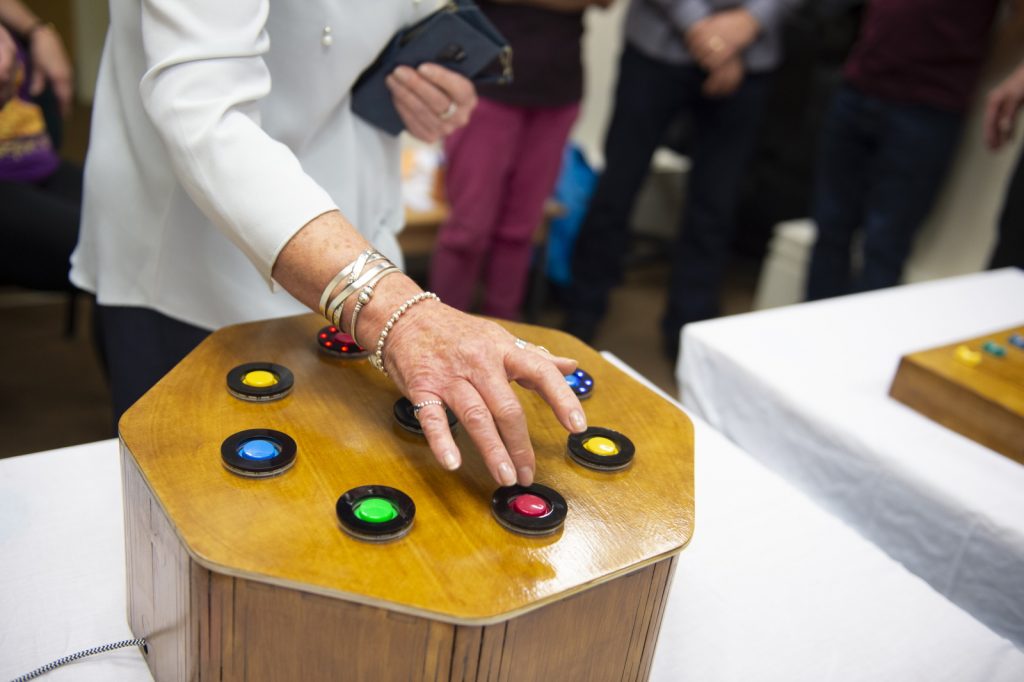
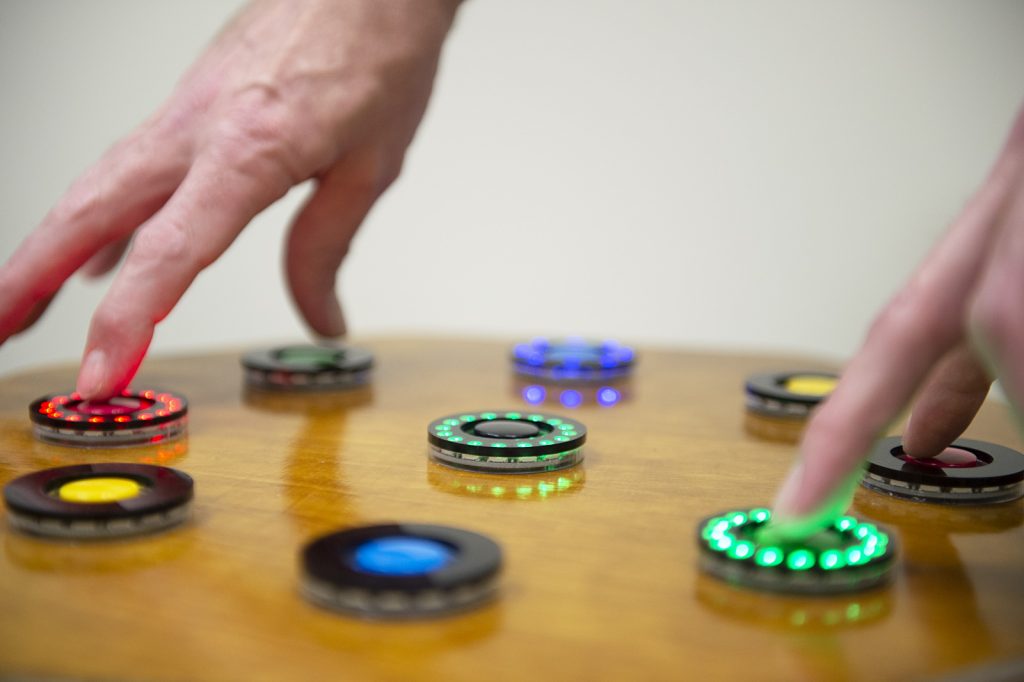
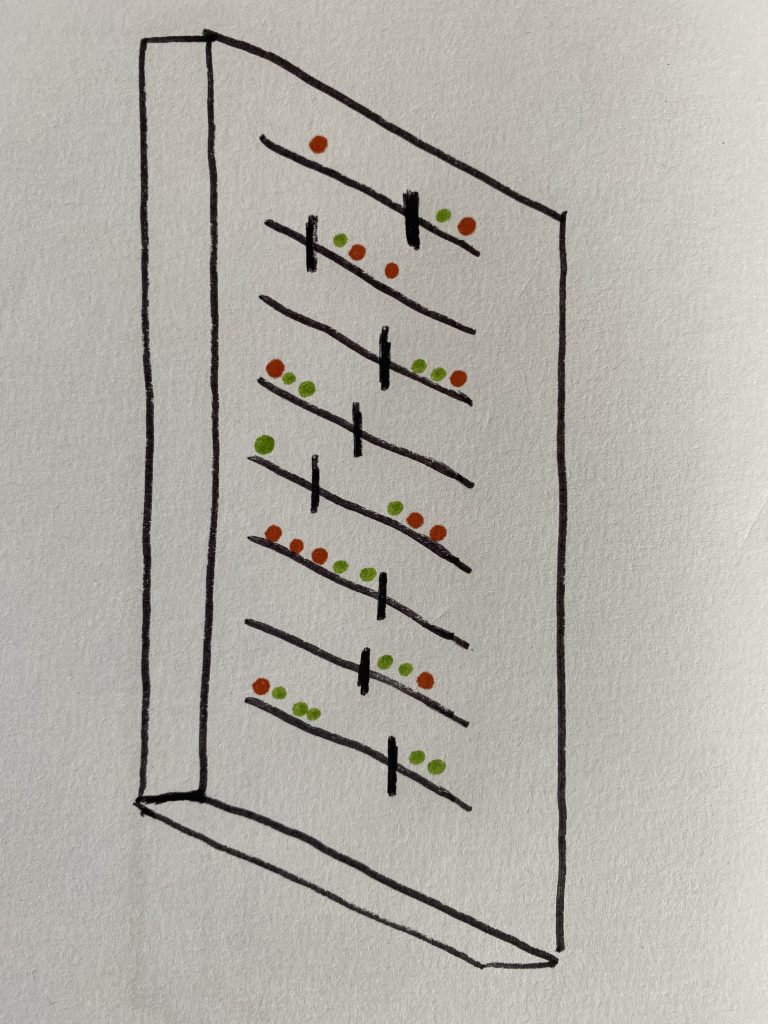
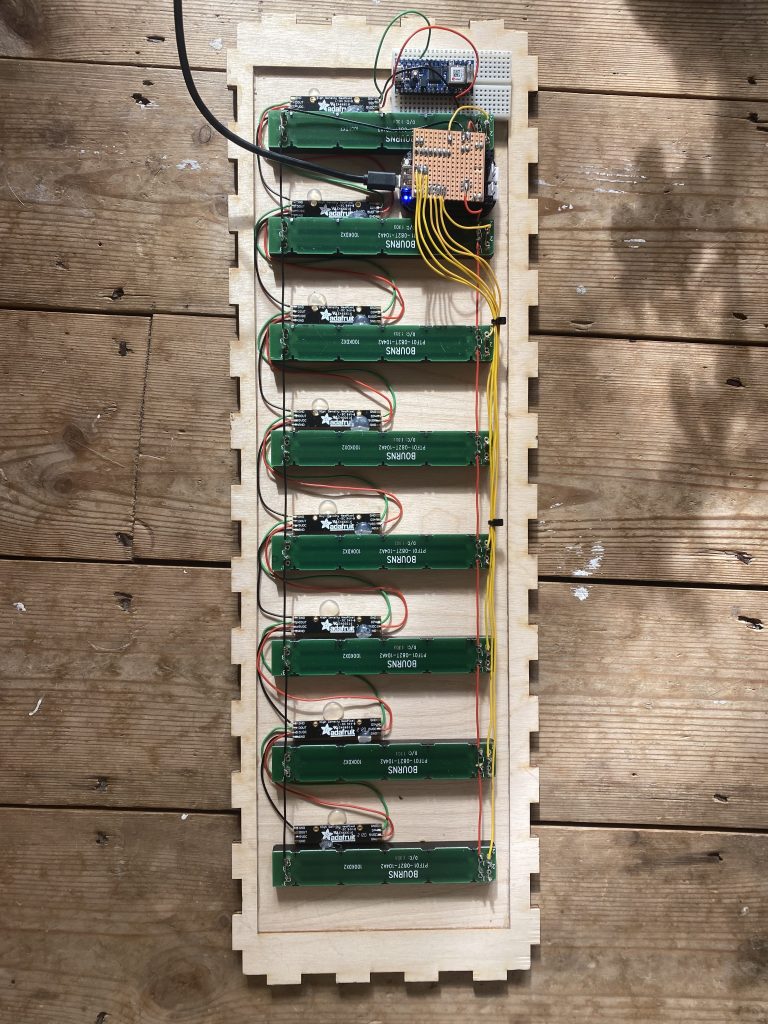
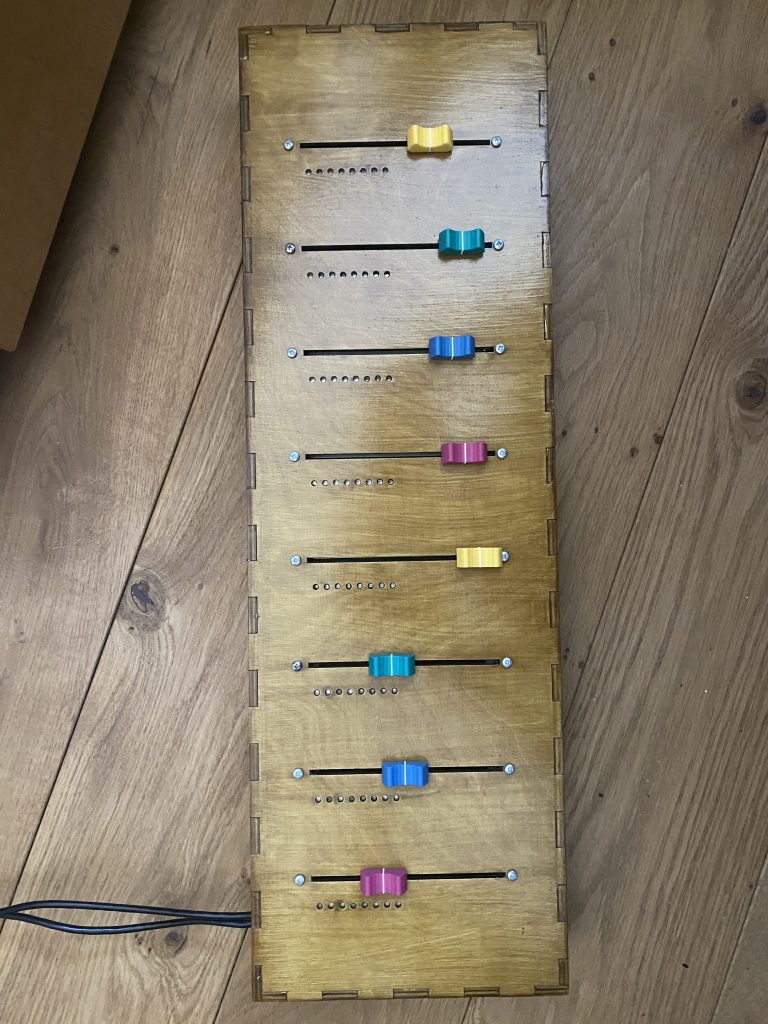
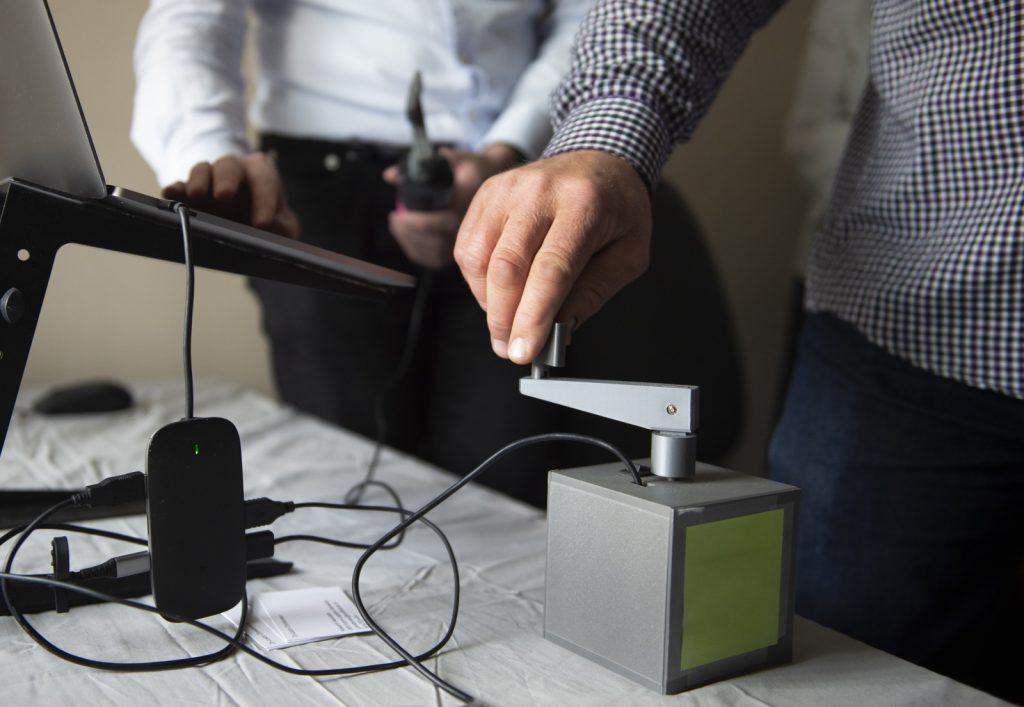
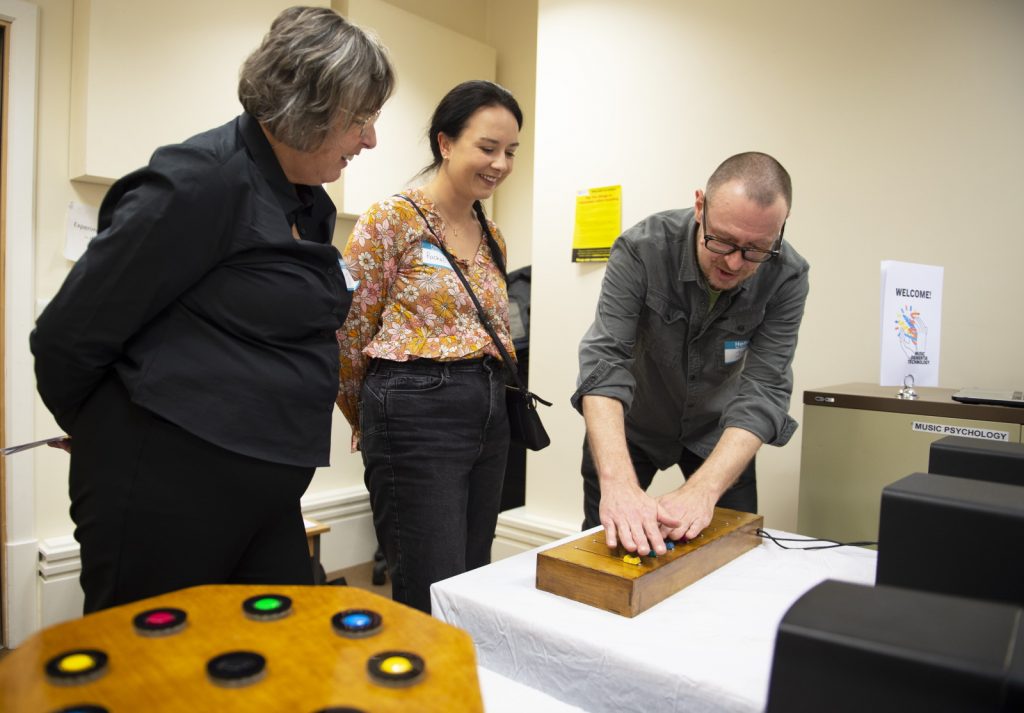




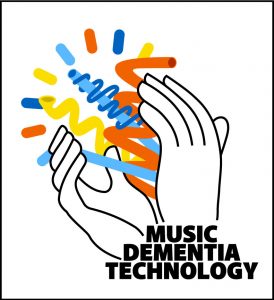
Hello, we are really interested in bringing this equipment into our home. We a very music orientated and feel this would benefit a lot of our residents.
Thanks Kelly and great to hear your residents would be keen for more opportunities to interact with music. We are always happy to discuss how we might work together and develop these devices to suit various settings. I’ll be in touch directly through email.